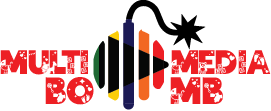BUSINESS & FINANCE
How to Start a Blog?


The term “blog” is essentially a condensed version of the term “weblog”. Early internet users might use the weblogs to record the events of their days in diary-style posts. Because blogs frequently allow users to leave comments, communities sprang up around successful blogs as they became more popular. Getting a website and publishing original content on it is all it takes to start blogging. Bloggers who are tech-savvy can purchase a domain name and develop their own website. Those who are not familiar with HTML can create their account on WordPress, which make the online creation and publishing process easier. The majority blogs are simply websites. It’s vital to set aside time for creative thought because coming up with winning ideas is typically the most difficult part of blogging. Consider your goals, niche, target audience, and what you want to offer readers and customers to get started. Begin by making a list of the types of stories that your readers would enjoy. What are their names? What are they worried about? What city do they call home? What are the topics? Interlinking is another distinguishing element of blogging. This happens when a blogger includes a link to another person’s blog in their own posts. A political blogger may provide a link to another political blog and then argue how the two blogs are related. Some individuals are unsure what distinguishes a blog from a website. Many organizations use both, usually by adding a blog area to the corporate website, which contributes to the confusion. A blog, on the other hand, has two characteristics that distinguish it from a traditional website. Blogs allow readers to interact with each other. Because they both serve the same aim of connecting an audience with each other and the content producer, blogs and social media accounts frequently go hand in hand. Although some websites include elements that allow for communication, a blog often allows for more conversation and involvement than a standard website.
Start a blog:
Blogging is an excellent search engine optimization (SEO) tactic since search engines appreciate the new content. The frequency with which blogs are updated is a distinguishing trait, and fresh content can boost a website’s SEO performance. Blog entries may keep your consumers and clients informed about what’s going on, alert them to new offers, and offer advice. A blog not only allows you to demonstrate your expertise and reputation, but it also allows visitors to leave a comment and communicate with you. Customers can get to know you this way, and hopefully form a relationship that leads to purchases. Successful bloggers can generate revenue on their own. Blogs make revenue from a variety of sources, including advertising and affiliate items, in addition to your product or service. The more useful information you produce, the more consumers will visit your site, and the more likely they will spend money. The good news is that starting a blog or adding a blog to your existing site is relatively easy and affordable.
Being excited and involved with your new blog is the key to establishing a successful blog. Building a routine and repeating these procedures will draw more readers to your site and develop your authority within your sector, so stick to your schedule and follow these steps. Then sit back and enjoy your audience expand.


